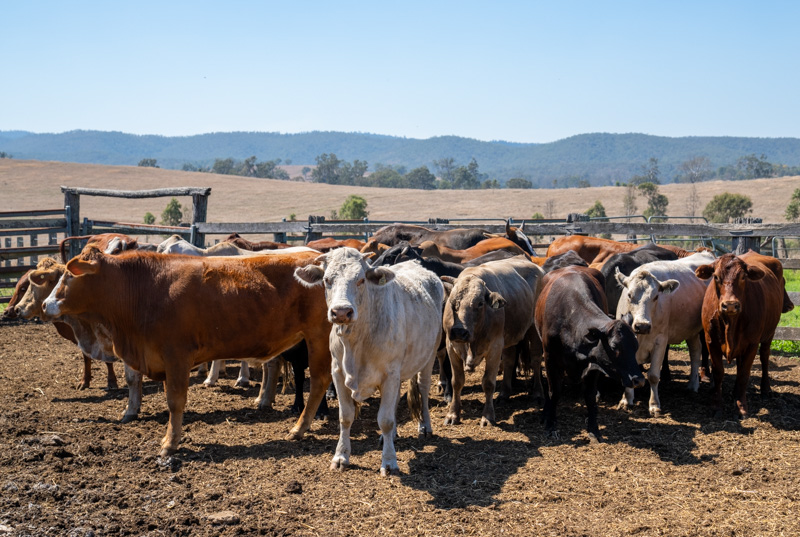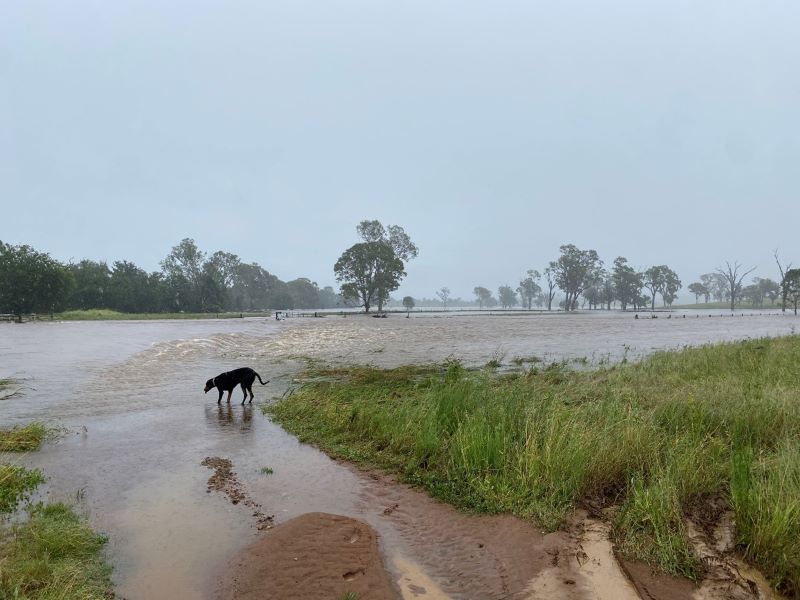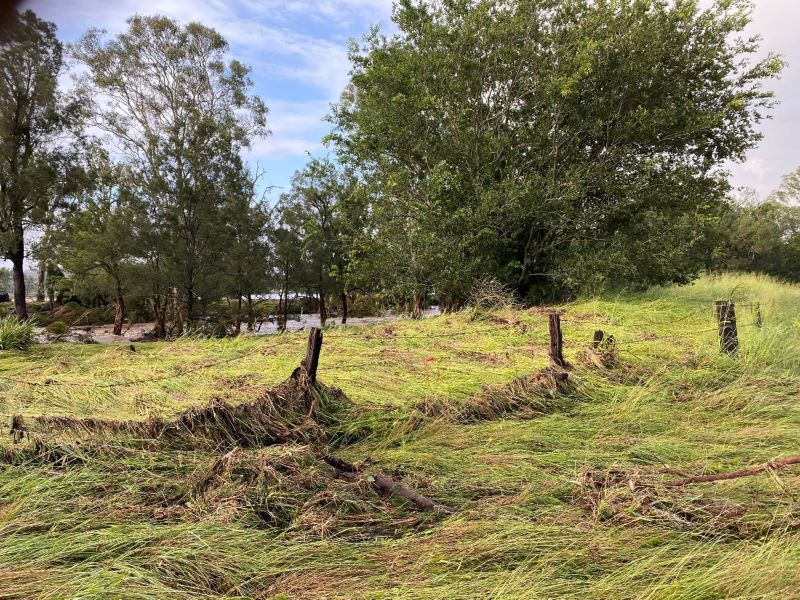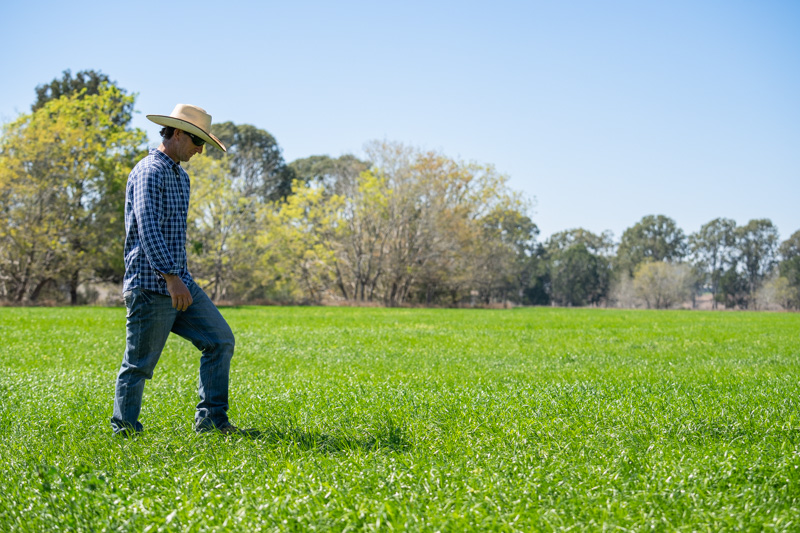RIC loan helps cattle graziers recover from multiple disasters and improve farm productivity
Cattle graziers Dane and Rachael Lehmann are using a RIC Farm Investment Loan to recover and improve their business after experiencing drought and successive natural disasters.
Fourteen years ago Rachael Lehmann left a corporate finance job in Brisbane to work on the land with her husband Dane.
While raising their four children on a 730-hectare property at Tansey, located in the Gympie region of south-east Queensland, the couple run 300 head of cattle turning-off crossbred Simmental weaners.
“I really like the slower pace of agriculture and I really like seeing that end product get on the truck,” Rachael said.
“I like seeing what all your hard work actually resulted in.”
However, over several years the couple suffered a series of unforeseeable events which pushed their farm business to the financial brink.
One disaster after another
In October 2018, a tornado whirled through their property, destroying pastures and damaging kilometres of fencing.
“[The tornado] twisted fully grown trees out of the ground and just threw stuff everywhere,” Rachael said.
“We had a paddock locked up to feed 100 cows and it was just gone in a day.”
The disaster struck as the height of drought conditions set in.
The Lehmanns were forced to drill bores in search for water, source feed at high costs, and destock cattle at low prices.
“It’s heartbreaking. Letting go of your cattle is one thing. Letting go of your cattle for next to nothing is just a whole other story.”
Then just as the drought began to ease, in January 2022 the effects of Ex-Tropical Cyclone Seth unfolded.
Floodwater inundated a third of the property. It swept away livestock and damaged fences, irrigation, and electrical infrastructure.
“The loss of fences, and the debris, was like nothing anyone had ever seen before,” she said.
“Just putting everything back together was really tough because it was so destructive.”
When a second flood came through six weeks later, wiping out many fences they had just repaired, Rachael broke into despair.
“I just cried, and cried, and cried,” she said.
With the mounting recovery costs, one thought constantly burdened her mind.
“You wake up in the morning and the first thing you think of is, ‘where are we going to get money from?’”
Recovering from cumulative impacts
While disaster grants brought some immediate financial relief, Rachael and Dane wanted to improve the finances of their business in the long-term.
The couple successfully applied for a RIC Farm Investment Loan by meeting key eligibility which included demonstrating how cumulative events made a significant financial impact on their business.
Customers can borrow up to $2 million over a 10-year term with interest-only payments during the first five years.
The frequency of repayments is structured (quarterly, half-yearly, annually) to suit the farm business.
Rachael said refinancing part of their existing commercial debt to the RIC’s concessional variable interest rate allowed the business to improve cash flow, enabling them to recover faster and move forward.
“That change in interest rate is quite a substantial amount of money for us, so it has taken the pressure off,” she said.
“It just meant that we were going to have the opportunity to get ahead.”
Drought-proofing plans underway
The Lehmann’s farm sources water from a nearby creek, but it would run dry during droughts.
With the improved cash flow from the loan, the couple began investing in a water security project they had long planned but never realised.
They have drilled more bores with a plan to install a centre pivot irrigation system, which will increase the productivity and efficiency of their property.
“It’s a huge step up for us and it will have amazing onflow effects for our cost of production and that’s very exciting,” Rachael said.
“It was a massive relief to know that we would be able to go back and look at drought- proofing the property and get some water security here.
“If we didn’t move to the RIC, this water project could not have happened.”




